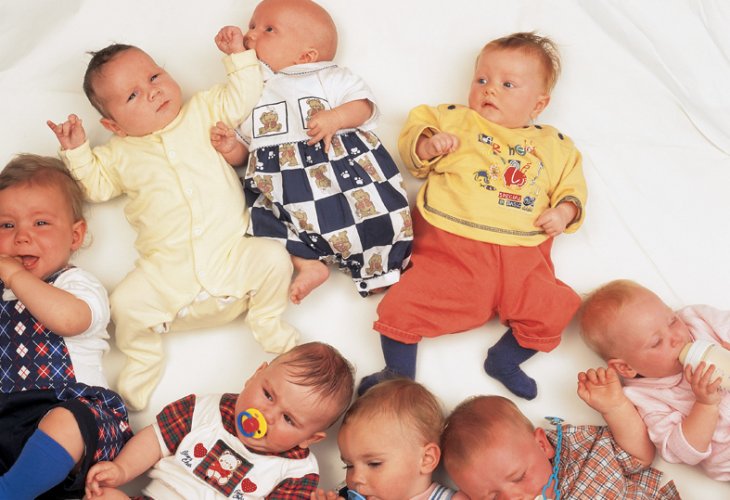פרשת שמות
Kids - Are a blessing
Shiprah and Puah understand Pharaohs intention of perishing the people of Israel by decreasing the birth rate and they teach us the devotion needed in raising children
- Rabbi Zamir Cohen
- פורסם כ"ו חשון התשע"ד

Our Torah portion opens the book of Exodus, the book of the exile and the redemption of Israel, through the settlement and breeding of Jacobs descendants in Egypt: "And the children of Israel were fruitful, and increased abundantly, and multiplied, and waxed exceeding mighty;" Our sages see in these multiple descriptions an indication that the women of Israel used to give birth to six newborn babies in one birth, up to the point that the Torah testifies: "And the land was filled with them". Pharaoh is afraid of the demographic threat that could take over his country, and therefore sentences to cast all the baby boys to the Nile river.
This commandment arose after his unsuccessful attempts in reducing the people of Israel. Before that, Pharaoh ordered the Hebrew midwives Shiprah and Puah, to kill all of the boys that were born and spare the lives of the baby girls. But they chose not to obey his decree, and saved the all newborns. The midwives got in return of their great devotion a powerful blessing from G-d:" people.
It only makes sense to ask: Why did Shiprah and Puah put themselves in such great danger by disobeying Pharaoh? The lesson that these two righteous women want to teach us is the enormous significance of taking care and protecting the next generation. They were aware that the people of Israel had to continue increasing and multiplying despite their dark reality of the enslavement in Egypt at the time. Without any children – there was no hope for the people of Israel to survive.
In our generation many support the idea of reducing the birth rate. The prevailing opinion is, that when there is a large number of children in a family, the children do not receive the attention they deserve from their parents, and that impairs their standard natural growth. The conclusion based on this approach is that it is best for parents to have a small number of children.
However one must know that approach is wrong. Experience shows that those who grew up in large families developed important qualities in their personality such as: happiness, values of partnership, giving, patience, postponing satisfactions and more. The connection between the family members, the friction between the children, games they play with each other and even fighting – actually build the child in a correct way, teaching him how to cope with different situations in his life.
Like in any family, also large families have to put a stress on their kids education. Educating means guiding a childs behavior in different situations of life, and not only providing ones schooling needs. The warm family atmosphere, plus the Jewish educational values, lead a winning combination that brings great satisfaction to the parents, and an enormous benefit to the existence of Israel.
Rabbi Ben Zion Abba Shaul Zt made an interesting comparison: A person usually chooses to bring to the world the same amount of children that were in his family. For example, if a couple choose to bring two children, most chances are that their children will choose to bring two kids as well, and so on. After five generations the number of offspring born to the first couple would be 32. On the other hand, a couple who grew up in a large family will also choose to bring the same amount of children that was in their families. So a couple who began with 10 children, assuming that their children will bring the same amount of kids – then in the fifth generation we would count no less than a hundred thousand offspring (10^5)!
By encouraging birth rate, Shiprah and Puah teach us about the devotion and self-sacrifice for the people of Israel. The people of Israel need to grow – in quantity and quality. "And their seed shall be known among the nations, and their offspring among the peoples; all that see them shall acknowledge them, that they are the seed which the LORD has blessed".
Shabbat Shalom
החליפו עכשיו את אפליקציית טיקטוק בהידברות Shorts וצפו בתוכן איכותי ומחזק.
לחצו כאן להורדה >>



